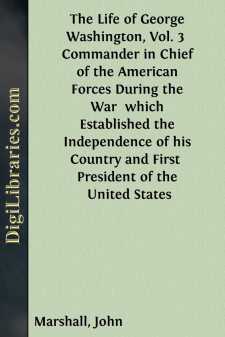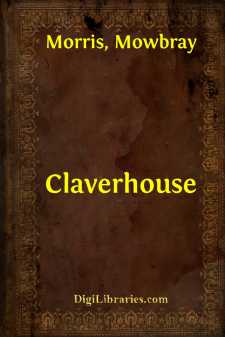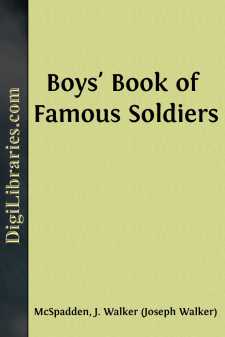Biography & Autobiography
- Adventurers & Explorers 15
- Artists, Architects, Photographers 16
- Business 2
- Composers & Musicians 14
- Criminals & Outlaws 5
- Editors, Journalists, Publishers 6
- Educators 1
- Entertainment & Performing Arts 3
- General 74
- Health, Exercise & Fitness 1
- Historians 3
- Historical 83
- Law Enforcement 1
- Lawyers & Judges 3
- Literary 147
- Medical 7
- Military
- Naturalists, Gardeners, Environmentalists 8
- Personal Memoirs & Diaries 227
- Philosophers 3
- Political 9
- Presidents & Heads of State 38
- Religious 38
- Rich & Famous 27
- Scientists 13
- Women 31
Military Books
Sort by:
Chapter 12. Gen. Gates — bon mot of British general Lee — how an army ought not to march — De Kalb prophecies — chickens counted before they are hatched, alias, Marion and the author sent by Gen. Gates to prevent the escape of Cornwallis, before he had run — the British and American armies meet — Gates and his militia-men leave De Kalb in the lurch — his gallant behavior, and glorious...
more...
INTRODUCTION The discovery of an unknown address by Abraham Lincoln is an event of literary and historical significance. Various attempts have been made to recover his "Lost Speech," delivered in Bloomington, in 1856. Henry C. Whitney undertook to reconstruct it from notes and memory, with a result which has been approved by some who heard it, while others, including a considerable group who...
more...
by:
John Marshall
CHAPTER I. Incursion into Jersey.... General Lacy surprised.... Attempt on Lafayette at Barren Hill.... General Howe resigns the command of the British army.... Is succeeded by Sir H. Clinton.... He evacuates Philadelphia, and marches through the Jerseys.... A council of war which decides against attacking the British on their march.... Battle of Monmouth.... General Lee arrested.... Sentenced to be...
more...
by:
Mowbray Morris
CHAPTER I. John Graham, Viscount of Dundee, best known, perhaps, in history by his territorial title of Claverhouse, was born in the year 1643. No record, indeed, exists either of the time or place of his birth, but a decision of the Court of Session seems to fix the former in that year—the year, as lovers of historical coincidences will not fail to remark, of the Solemn League and Covenant. He came...
more...
by:
Edward Osler
CHAPTER I. FAMILY HISTORY. The life and services of Lord Exmouth are of no common interest; not more because he has advanced the reputation of his country, and connected his name with her history, than that he began his career an almost unfriended orphan, and rose to the highest honours of his profession without having been indebted to fortune or to patronage. One of the most interesting spectacles is...
more...
BOYS' BOOK OF FAMOUS SOLDIERS WASHINGTON THE YOUNG SURVEYOR "Turn your guns around on them! Stop them!" The command was given in peremptory tones to a demoralized group of soldiers. Not waiting for them to carry out his orders, the young officer who gave them leaped from his horse, and with his own hands turned one of the guns upon the advancing foe. Had it been the Argonne Forest, and the...
more...
by:
Basil Hall
TAKING A LINE IN THE SERVICE. That there is a tide in the affairs of men, has very naturally become a figure of frequent and almost hackneyed use in the cockpits, gun-rooms, and even the captains' cabins of our ships and vessels of war. Like its numerous brethren of common-places, it will be found, perhaps, but of small application to the real business of life; though it answers capitally to wind...
more...
CHAPTER I INTRODUCTORY I The time has not yet come to write the biography of John Redmond. Not until the history of the pledge-bound Irish Parliamentary party can be treated freely, fully and impartially as a chapter closed and ended will it be possible to record in detail the life of a man who was associated with it almost from its beginning and who from the opening of this century guided it with...
more...
CHAPTER I. The Guernsey family of BROCK is probably of English origin, but we have been unable to ascertain the period of its first establishment in the island. The parochial register of St. Peter-Port extends only to the year 1563, soon after which time it contains the name of Philip Brock. By "Robson's Armorial Bearings of the Nobility and Gentry of Great Britain and Ireland," eight...
more...
AT FORT LEAVENWORTH—THE TREATY OF MEDICINE LODGE—GOING TO FORT DODGE—DISCONTENTED INDIANS—INDIAN OUTRAGES—A DELEGATION OF CHIEFS—TERRIBLE INDIAN RAID—DEATH OF COMSTOCK—VAST HERDS OF BUFFALO—PREPARING FOR A WINTER CAMPAIGN—MEETING "BUFFALO BILL"—HE UNDERTAKES A DANGEROUS TASK—FORSYTH'S GALLANT FIGHT—RESCUED. The headquarters of the military department to which I...
more...











